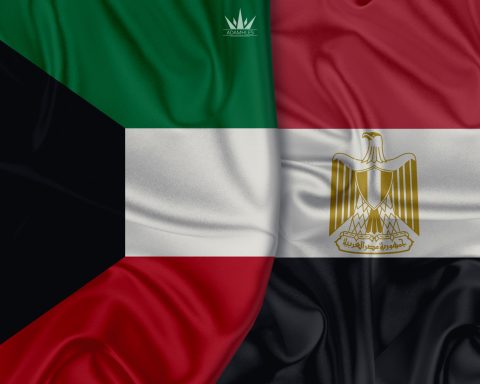Mohamed al-Najjar travelled from his home in Al-Gharbiya, to Italy five years ago and Mohamed stayed in Italy for about two years and obtained residence there, after which he decided to travel to Germany, and asked the German authorities for humanitarian asylum after which he obtained residence in Germany, thus having both German and Italian residences.
According to his brother Yosri Abdel Fattah al-Najjar, Mohamed returned to Italy to renew his stay there, and on his return to Germany, German police arrested him on charges of breaking his humanitarian asylum from Germany, travelling abroad, and told him that a German court had sentenced him to two months in prison.
Mohamed was staying in a refugee prison in Germany with friends, and when they went to the nursing home to get the monthly grant for humanitarian refugees – granted by German law – they were surprised by his absence, and when asked about it, the supervisor of the house told them, that she had received A police report of the death of Mohamed. Mohamed’s family learned of his death 26 days later when we received a phone call from a person named Amin Farouk, an Egyptian from Daqahliya, who is residing in Germany, informing them about Mohamed’s death and his burial. In German territory, after being beaten inside the prison.
Yusri did not yet know who was responsible for his brother’s death, whether the police or others, but what he was able to confirm was that his brother did not die of normal death. He added that his brother was buried three days after the incident without notifying the Egyptian embassy, and without “our consent and notification of the death, although he was carrying his Egyptian passport, in addition to residency,” accusing the German authorities of not taking legal measures in this, and that they buried his brother hurriedly.
According to information from the German authorities to the Egyptian Embassy in Berlin, the deceased signed a request not to notify the Egyptian Consulate General in Frankfurt at the time of his arrest last February, accused of theft in a shop.
In his farewell speech prior to his death, he also recommended that his body not be transferred in the event of death to Egypt, and expressly declared his unwillingness to notify any persons in emergencies, which called on the German authorities to end legal and health procedures relating to the burning of the body after the expiry of the prescribed period in these cases, and to bury his remains in the city’s cemeteries.
The Egyptian Embassy in Berlin, upon learning of the death incident, made extensive contact with the German Foreign Ministry and the state prosecutor’s office to confirm the Egyptian position against burning the body before coordinating with the Egyptian mission,
As well as informing them of the progress and results of the criminal investigation, including a lack of regard to the nationality and religion of the deceased, the necessity of complying with legal procedures for the burial of his body, as well as the importance of accessing the body by specialists to verify the circumstances of his death.
German authorities had previously reported that Mohamed Abdel Fattah Suleiman al-Najjar died on June 22nd in a city hospital from injuries sustained after attempting to commit suicide by hanging on June 16th in his prison, where he was serving his sentence after being convicted of two robberies, and the German side explained that the examination of the body confirmed that the death did not occur as a result of third-party intervention.
The consular sector of the Ministry of Foreign Affairs is constantly communicating with the family of the deceased to inform them of the efforts and guidance received by our mission in Germany to make extensive contacts with the German authorities, to ensure the integrity of the actions taken so far, to verify that there is no criminal suspicion of the death, and to provide all possible forms of support to the family.







